Arun Baral/Analysis
Kathmandu, September 30
India has violated the 1950’s Peace and Friendship Treaty signed with Nepal. With this violation, thorny issues like the Sugauli Treaty and Greater Nepal may get a revival and trigger a dispute.
 With this violation, it will not be surprising if Nepal raises questions over the legality of the Koshi agreement, the Gandak agreement, Mahakali treaty and the Upper Karnali PDA signed with India.
With this violation, it will not be surprising if Nepal raises questions over the legality of the Koshi agreement, the Gandak agreement, Mahakali treaty and the Upper Karnali PDA signed with India.
Why should we hand over the contract for the construction of the Kathmandu-Tarai Fast Track and the accompanying tunnel to Indian companies? Why should we hand over the contract for the upgradation of the Tribhuvan International Airport to India? Questions like these may arise. As it appears pretty clear that India is bent on intimidating Nepal, it will be but natural for Nepalis to think about awarding the contract for the construction of the Nijgadh airport to China or any other trustworthy foreign country.
Enforcement of a blockade against Nepal is sure to hit India by resulting in an unfriendly climate for Indian investment in hydropower projects in Nepal.
The latest development will result in two possibilities: Either Nepal will become a protectorate like Bhutan or emerge as an anti-Indian, independent and sovereign nation.
And if India seeks to turn the Madhes into Jaffna of Sri Lanka by triggering a civil war, the impact of such a design will be felt in Jammu and Kashmir, Darjeeling, Sikkim and Assam. The Indian National Congress and the communists will wage a jihad of sorts against the Modi government.
How the 50’s treaty got violated
Nepal has been demanding either abrogation of the treaty or its amendment. India has not conceded to this demand so far. A number of provisions in this treaty encourage Indian intervention in Nepal. Of late, India has violated provisions that are favourable to Nepal.
Clause V of the peace and friendship treaty states Nepal can import military equipment through Indian territories. Despite this provision, India does not even let Nepal import petroleum products using its territories, let alone weapons. This is a blatant violation of the treaty. The blockade is tantamount to Indian attack on Nepal.
In his article, former Indian ambassador to Nepal, Rakesh Sood, analyses the increasing migration of hill people to Madhes. Using the same yardstick, it will be justifiable to calculate the number of Nepalis working in the Indian Army’s Gurkha regiment. Which legal provision identifies Darjeeling as part of India? If India does not welcome the constitution passed with an overwhelming majority, Nepal has no compulsion to support the usurpation of Sikkim, which India made part of its territories on the strength of majority.
In Assam, there’s a dispute over the issue of citizenship with Indians of Nepali origin facing discrimination. Nepal may have to raise this issue. It may have to bring to the fore a number of such issues if India continues to comment on our domestic affairs.
From Kolkata to Delhi, from hotels to coal mines, Indians treat Nepali workers like slaves. There are overseas Nepali organisations that can raise voices for the rights of these workers in international fora.
Nepalis, too, can micromanage Indian politics. They too can lobby with Indian communist parties and Maoists on different issues. Seeking support from Modi’s opponents Mamta Banerjee, Nitish Kumar and the likes, Nepal can ease cross-border trade.
Nepalis will be under no compulsion to abide by the 1950’s treaty if India continues to violate the same. They can effectively block the entry of Indian vegetables to Nepal if India continues to stop the supply of petroleum products to Nepal, while allowing the export of rotten vegetables. India is advised not to flex its muscles by blatantly violating international laws, for Nepalis are not weaklings. India should not forget that even when India was a British colony, Nepalis fought the British.
Adhering to the 1950’s treaty, India should let Nepal import petroleum products through its territory. Blocking this import is against the treaty. It is a crime against Nepal.
Who will give in: Delhi or Kathmandu?
For Nepal, the blockade has become a rallying point for self-respect. Addressing Indian concerns amid this blockade will be akin to Nepal’s defeat.
Giving in to Delhi’s pressure is like turning Nepal into India’s protectorate. So, heeding to India’s demands in exchange for easing of the blockade will be a historic blunder for Nepal. At an interaction organised with editors this week, UML Chair KP Oli had said, “We are ready to address just concerns of our neighbour.”
India’s first and foremost concern is that it does not want Oli to become the prime minister, come what may. Indian intelligence official Mahur divulged this at talks with UCPN-Maoist and Nepali Congress leaders during his recent Kathmandu visit.
India’s immediate concern is preventing KP Oli from becoming the PM. It wants to make its stooge the PM and end the blockade. In the past, India has used this trick to bring Bhutan’s opposition party to power. It is applying the same trick here, by imposing a blockade.
Oli can outwit India using three alternatives: By letting India have its way in the selection of the PM, by giving in to Indian agendas and becoming a subservient PM. Then comes the third alternative. Using this alternative, the three parties can choose the prime minister during the upcoming parlimentary session, regardless of what India says.
These are the ways to beat India’s aspirations for micromanagement of Nepal. Instead of letting India’s favourite candidates become the President and the Vice-President, parties will do well to choose them on their own.
Even after beating India in this prime ministerial game, the new prime minister may have to bear with Indian pressure and blockade. What to do in such a situation?
Lessons learnt
The Indian blockade has taught Nepalis some good lessons.
In his speech delivered in the Constituent Assembly last year, Indian prime minister Narendra Modi had told CA members to draft a constitution with what he called Rishi man (with the heart of a saint). Through this blockade, we came to know about the monster that resides in Rishi man. Secondly, we came to know how dependent we have become. Thirdly, we found that even in India, a section of the population does not want enmity with Nepal. That section harbours goodwill towards Nepal and is against subjecting us to a blockade. Fourthly, we came to test the sensitivities of Madhes. Last but not the least, we came to know how feeble our state has become. It has become so weak that it cannot raise a strong voice against the Indian blockade, which is a blatant violation of international laws, by opting for international lobbying.
Internalising these lessons, Nepal can thus seek ways to become independent and self-sufficient. This should calls for a nationwide debate.
Our strength
We should realise that we have an edge over India on certain issues.
Let’s recall what Modi said in the Parliament during his Nepal visit. He had pointed there’s no shortage of willpower and ideas in the land where the Buddha was born. Modi had asked Nepal to let India buy Himalayan herbs and water resources.
Modi has said Nepal’s water resources are India’s lifeline. Just like we need petrol, India cannot do without electricity. India will land in a huge trouble if it loses its grip over hydrropower projects in Nepal. Even for the sake of hydropower, India has to maintain friendly relations with Nepal.
Secondly, not only in areas of trade, Nepal is crucial for development, stability and security of India. Nepal has friendly ties not only with China, but also with Pakistan as well. Nepalis have access to Darjeeling, Sikkim and Assam in the east. Turmoil and unrest in Nepal can affect India as well. Poverty, unrest and violence in Madhes can hinder trade between Nepal and India.
Thus, India has a compulsion to help Nepal become peaceful and prosperous.
Third, Indian intervention in Nepal may affect territories from Kashmir to Sikkim. This may even affect Bhutan. Nepalis protest against Indian intervention can energise independence movements in Kashmir. It can awaken Sikkim from deep slumber and stoke anti-Delhi sentiments there. In Bhutan, a huge section of the population is rising against Indian interference. So, India’s hostile behaviour towards Nepal will affect neighbours. In Sri Lanka and Bangladesh, the Nepal episode may stoke anti-India sentiments further.
Fourthly, blockades meant to cause trouble to Nepal will create new generations of Nepalis with anti-Indian sentiments. The blockade has planted anti-Indian feelings in children as well. The new generation of Nepalis, that was not prejudiced against India, is harbouring anti-Indian sentiments because of the blockade. This will affect India in the long run. Who knows? Ultimately, Indian traders may have to pull shutters and return to Rajasthan!
If driven out from Delhi, Nepali labourers working for a pittance will return to Nepal, and make Nepal prosperous by raising cows and goats. Moreover, Nepalis no longer have to head to coal mines based in India for jobs. They are earning far more in Arabian countries.
Cleaning our waters
If India intends to bring us to our knees, why shouldn’t we take back water resources from Indian clutches? Why not scrap the Upper Karnali PDA, considered the cheapest in the world, and construct the hydropower project ourselves. Why not construct the Kathmandu-Tarai Fast Track on our own instead of giving away the project to an Indian company? If we can’t tap our water resources to generate electricity, let’s happily live under extended loadshedding instead of bowing to Indian blockade and doing its bidding.
Our national hero, Balbhadra Kunwar, fought a similar blockade. Why should not we? Another hero, Bhakti Thapa, did not bow his head before the British. Why should we? Because of the Indian blockade, questions like these have started haunting the Nepalis.
On Madhes
One cannot keep mum on Madhes while talking about Delhi-Kathmandu ties. People of Madhes are angry, but it is a different matter altogether. The India-imposed blockade is a matter related with our national pride and nationalism. There’s a need to look at these issues separately.
Indian officials based in Kathmandu are saying that India has not imposed a blockade. They would do well to listen to their own Sitaram Yechuri and parliamentarian Iyer. In India itself, voices against Indian blockade are getting stronger. How would these people talk about a blockade if there was no blockade at all? Instead of telling lies, India would do well to end the blockade. Indian Embassy officials should realise that this move will keep anti-India sentiments in check in Nepal.
There’s no obstruction on the cross-border movement in Kakadbhitta. Despite this, India’s Seema Sashastra Bal (SSB) is forcing petroleum-carrying tankers to return. Why is SSB doing this? The Indian Embassy should answer.
Madhes’ agendas are Nepal’s internal matters. Nepalis living in Madhes, too, have nationalist sentiments. India should realise that its interests will not be served by provoking those people, who strive for separation citing police excesses and those who do India’s bidding by humiliating their own country.
It should be noted that Pakistan is rooting for Kashmir’s independence through a UN resolution. India will invite trouble by acting here like it did in Sri Lanka. It should not think a country maintaining its independence for ages will bow to it.
Even if some leaders bow to the blockade, India should realise it has lost its clout in Nepal. Indian agents clad in daura are losing their sleep these days. Rising anti-Indian sentiments suggest that staunch anti-Indian figures have greater chances of coming to power. This is indeed sad for India.
Reeling under a shortage of petroleum products, Kathmandu may bow before India for a while, but Everest will not bow before India’s domineering attitude. In the land of the Buddha, there’s no dearth of self-pride, there’s no dearth of ideas. Modi himself has conceded that bravery is not something that Gorkhalis lack. The water flowing from Sagarmatha is not like that of Bhutan and Sikkim.










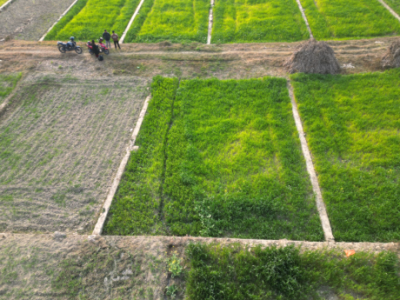



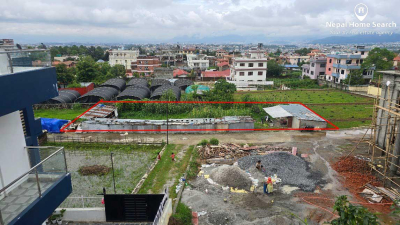
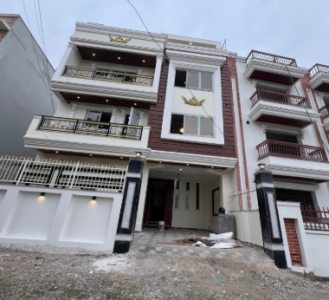

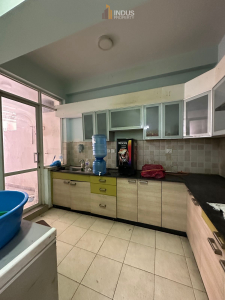


.jpeg)
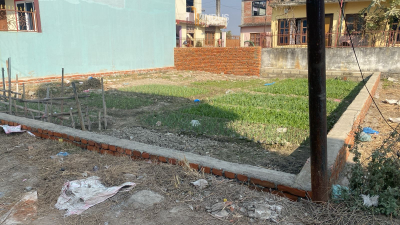
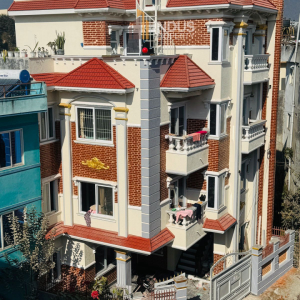
.jpeg)
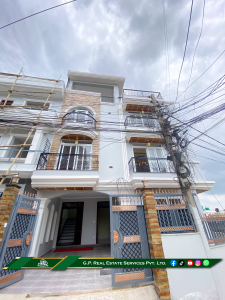



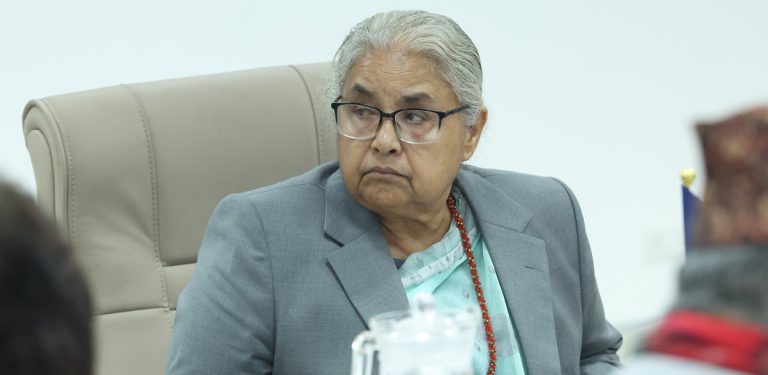

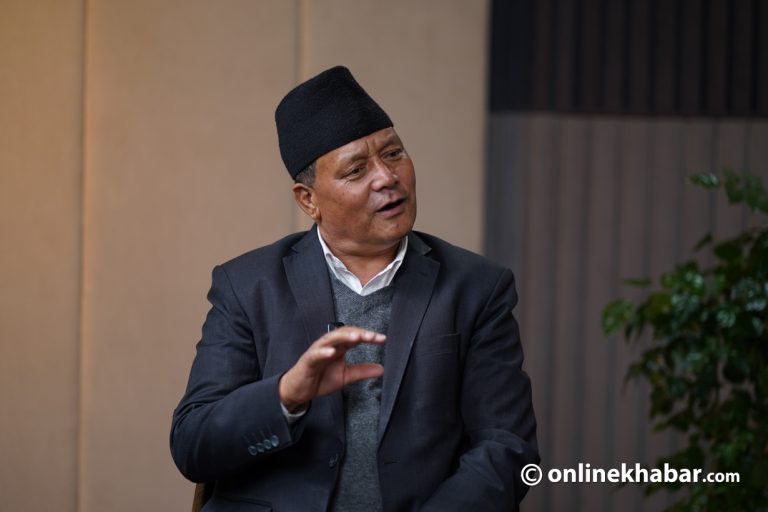
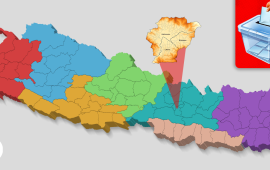
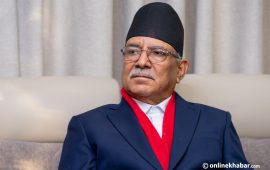

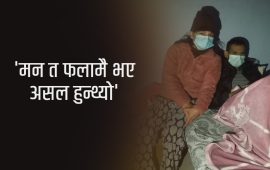
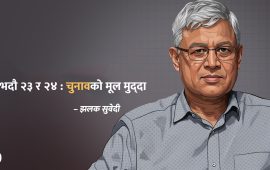

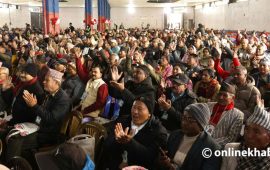



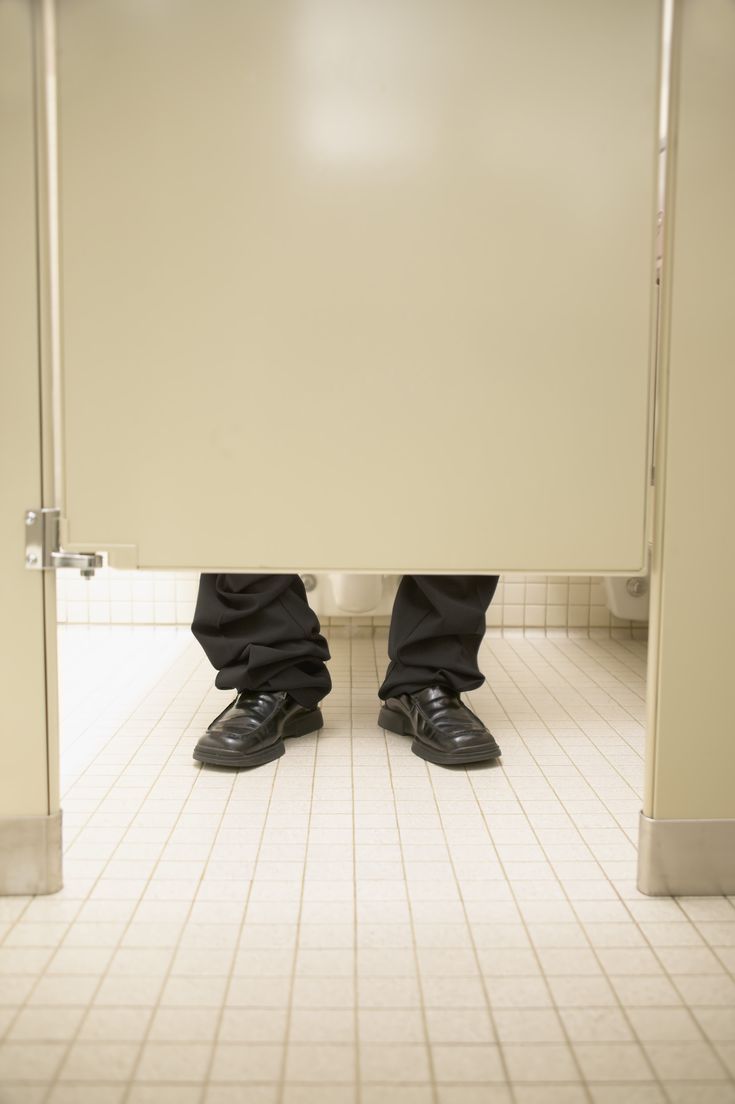



प्रतिक्रिया 4